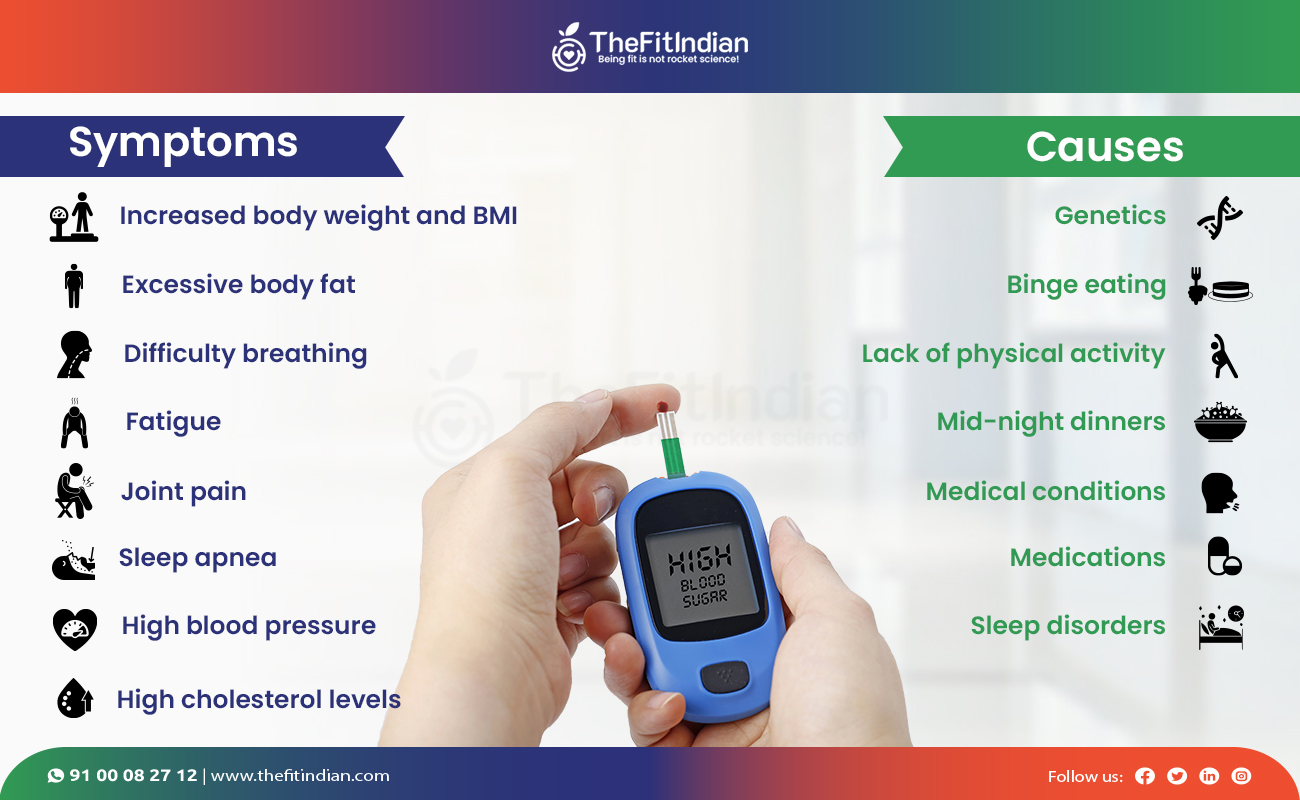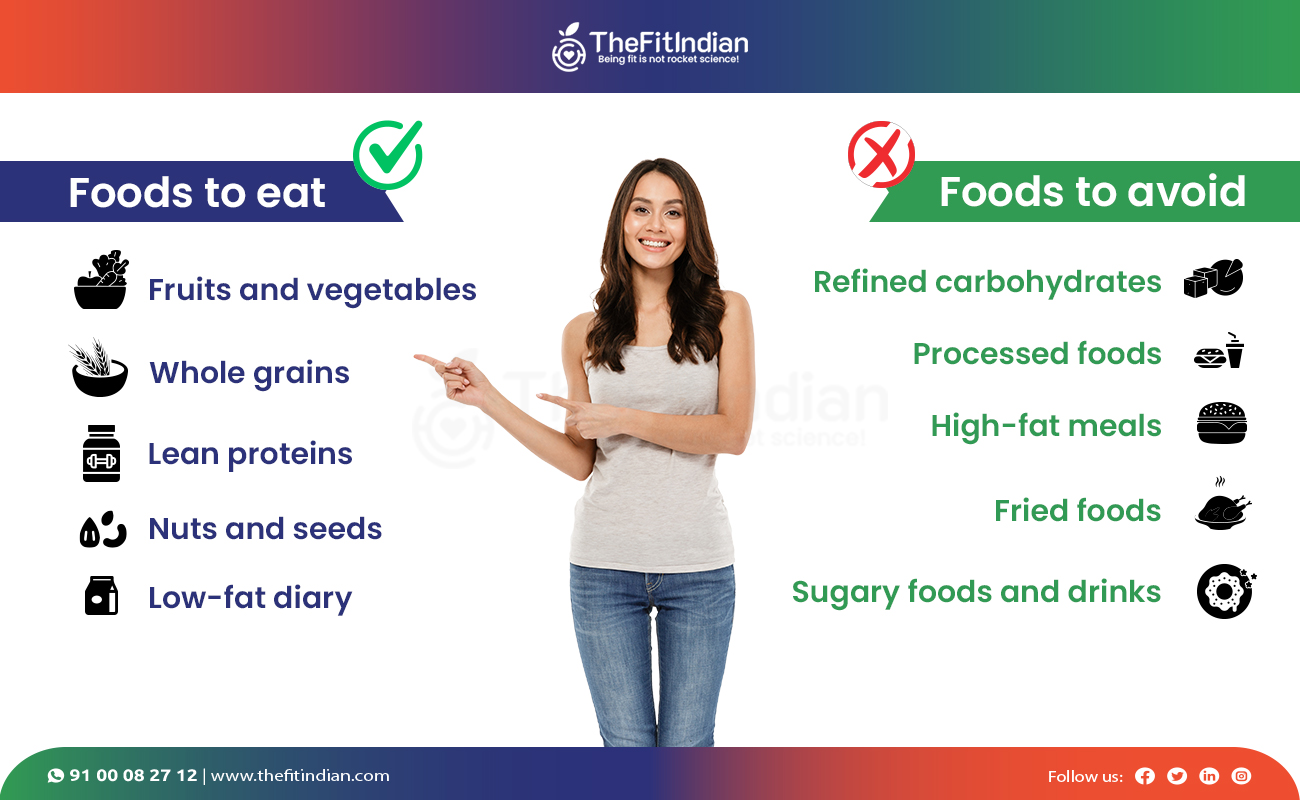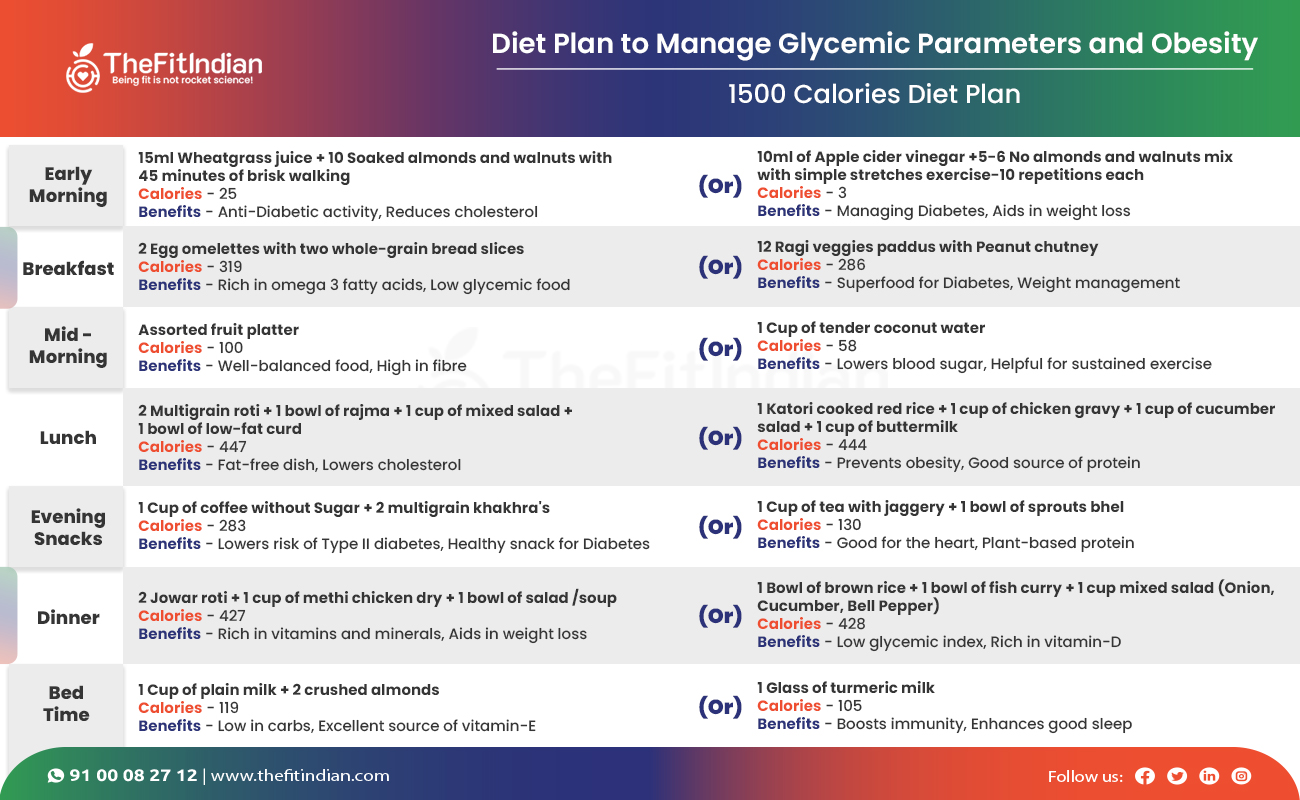Correlation Between Glycemic Parameters and Lifestyle Factors in Obesity
Reviewed by: Dr. T S Deepthi Sarojini | Author: Manoja Kalakanti
Obesity is like a formidable enemy that lurks within, waiting to strike with its deadly claws. It is a condition that plagues millions worldwide, manifesting in excess body fat that can lead to various health complications. To put it simply, obesity is the accumulation of an unhealthy amount of fat in the body, causing a person’s weight to increase beyond the recommended levels.

But obesity is more than just a physical condition. It is an insidious force that can gradually seep into a person’s life, affecting their mental and emotional well-being. The impact of obesity can be far-reaching, with negative consequences on a person’s confidence, self-esteem, and social interactions. While the factors behind obesity are diverse and multifaceted, recent research has revealed a fascinating correlation between the glycemic index and lifestyle factors of obesity.
This blog post will delve into the relationship between glycemic index and obesity, exploring its causes, effects, and management strategies.
Understanding Obesity- Symptoms and Causes

Obesity is a condition where a person’s body accumulates excessive amounts of fat, negatively impacting their health. It is typically measured using body mass index (BMI), with a BMI of 30 or higher classified as obese. BMI is measured by considering body fat based on height and weight. The condition is a leading cause of preventable death, with increased risks of chronic diseases such as heart disease, stroke, Diabetes, and cancer.
There are different types of obesity, including central obesity, characterized by excess fat accumulation in the abdominal region, and peripheral obesity, which is indicated by excess fat accumulation in the hips and thighs.

Symptoms of Obesity
Obesity leads to a range of health complications and symptoms. Some common signs and symptoms of obesity include:
- Increased body weight and BMI
- Excessive body fat
- Difficulty breathing
- Fatigue
- Joint pain
- Sleep apnea
- High blood pressure and cholesterol levels
Causes of Obesity
Obesity is a complex condition that can result from various factors, including genetic, environmental, and lifestyle factors. Here are some common causes of obesity:
- Genetics
- Binge eating
- Lack of physical activity
- Mid-night dinners
- Medical conditions
- Medications
- Sleep disorders
Effective management of obesity involves maintaining a healthy weight, which is determined by monitoring one’s body mass index (BMI). People with an obese BMI may need to make significant lifestyle changes, including increasing physical activity and healthier food choices, to achieve optimal weight and lessen the risk of obesity-related health problems. Now let us delve into the glycemic index, its effects on obesity, and the foods to eat and avoid.
Understanding the Glycemic Index and Their Effects
The glycemic index (GI) measures how quickly carbohydrates in food are converted to glucose and enter the bloodstream. It is a ranking system from 0 to 100 that assigns a value to different types of carbohydrates based on how they affect blood sugar levels.
Foods with a high GI value (70 or above) are rapidly digested and absorbed, causing a rapid increase in blood sugar levels. In contrast, foods with a low GI value (55 or below) are digested and absorbed more slowly, causing blood sugar levels to rise gradually. The GI can be a useful tool for managing blood sugar levels and may also help with weight management and reduces the risk of heart disease, Diabetes, and some cancers.
Effects of Glycemic Index on Obesity
The effects of glycemic index on obesity are significant and multifaceted. High glycemic index foods can trigger a range of hormonal responses that contribute to weight gain and obesity. These foods cause rapid fluctuations in blood sugar levels, leading to hunger pangs and cravings, which can result in overeating and weight gain. They can also disrupt the body’s hormonal balance, leading to increased insulin production and other hormones that promote fat storage, which can build up excess fat in the body.
High glycemic index foods can also lead to the development of insulin resistance, a condition that is closely linked to the onset of obesity. Overall, understanding the effects of glycemic index on obesity is crucial for developing effective strategies to manage and prevent this growing health concern. The following section will outline dietary and lifestyle changes that can help individuals manage their weight and reduce the risk of developing obesity.
Managing Obesity and Glycemic Index: Foods to Eat and Foods to Avoid
Glycemic Index-Based Dietary Strategies for Obesity management can effectively stimulate weight loss and improve overall health. By taking foods with a low glycemic index, individuals can regulate blood sugar levels, reduce cravings, and improve feelings of fullness. In this section, we will explore specific foods to eat and foods to avoid to help manage obesity through glycemic index-based dietary strategies.
Foods to Eat for Obesity Based on GI:

Fruits and Vegetables:
- GI ranges from 0 to 70 based on the type of fruit and vegetable
- These foods are packed with essential nutrients, fiber, and antioxidants that help in the reduction of inflammation and promote weight loss
- They can also help maintain blood sugar levels, reducing the risk of developing type 2 diabetes
Whole Grains:
- GI ranges from 56 to 69
- These are complex carbohydrates high in fiber and provide a sustained release of energy, making you feel fuller for longer periods
- They are also rich in minerals, vitamins, and antioxidants essential for overall health
Lean Proteins:
- GI is zero for lean proteins
- Proteins such as chicken, turkey, fish, tofu, and legumes are low in GI and high in nutrients
- Including lean proteins in your diet can help reduce hunger and promote muscle growth, and repair
Nuts and Seeds:
- GI ranges from 0 to 50
- Nuts and seeds are sources of fiber, healthy fats, and protein
- They can help reduce inflammation, promote weight loss, and lower heart disease risk
Low-fat Dairy:
- GI ranges from 0 to 50
- Low-fat dairy products such as cheese, milk, and yogurt are good sources of protein, calcium, and other essential nutrients
- They can help promote bone health and reduce the risk of chronic diseases
Foods to Avoid for Obesity Based on GI:
Refined Carbohydrates:
- GI ranges from 70 to 100
- These include white bread, white rice, pasta, and sugary drinks
- They are instantly digested and absorbed by the body, causing a spike in blood sugar levels and promoting overeating
Processed Foods:
- Processed foods have varied Glycemic Index
- Processed foods are high in calories and added sugars and are often low in nutrients
- They can contribute to weight gain, inflammation, and chronic diseases such as Diabetes
High-Fat Meats:
- The GI for high-fat meats is 0
- Meats such as bacon, sausage, beef, and pork are high in saturated fats, contributing to inflammation and increasing the risk of heart disease
Fried Foods:
- The GI varies based on the type of food
- Fried foods are high in calories, unhealthy fats, and sodium and can lead to weight gain, inflammation, and chronic diseases such as Diabetes and heart disease
Sugary Foods and Drinks:
- For sugar foods and drinks, the GI ranges from 65 to 100 based on the food
- These include candy, cookies, cakes, and sugary drinks like soda and juice
- They are high in calories and can cause a spike in blood sugar levels, contributing to weight gain and increasing the risk of chronic diseases.
It is essential to note that while these foods may be beneficial in the prevention of obesity through glycemic index-based dietary strategies, they should be consumed within the limit as part of a balanced diet. So now let us dig into the Indianized diet plan as well.
Indianized Diet Plan

Bottom Line
To summarize, managing obesity requires a holistic approach that includes making informed food choices based on the glycemic index, regular exercise, stress reduction, and adequate sleep. In addition, low-GI foods can help regulate blood sugar levels and control weight gain.
Adopting healthy lifestyle habits and avoiding high GI foods can improve overall health and reduce the risk of related health conditions. So, let us make mindful food choices, stay active, and prioritize self-care for a healthy body and mind. Unfortunately, there’s no one-size-fits-all solution to obesity treatment, so working with your healthcare team to find the right approach is essential.
FAQs
Tips for obesity management
Stay physically active with regular exercise
Eat a balanced and nutritious diet
Limit intake of sugary drinks
Get quality sleep
Set realistic goals that are measurable, specific, achievable, relevant, and time-bound. In addition, make gradual changes to your diet and physical activity habits to establish sustainable behaviors over time.
Yes, the glycemic index can play a role in obesity. A high glycemic index (GI) diet can lead to rapid blood sugar levels and insulin release spikes, contributing to weight gain and obesity.
Yes, the glycemic index can play a role in obesity. A high glycemic index (GI) diet can lead to rapid blood sugar levels and insulin release spikes, contributing to weight gain and obesity.
To prevent obesity-related diabetes complications, maintain a healthy weight through a balanced diet and exercise, monitor blood sugar levels, and work with healthcare providers to manage Diabetes.
Obesity and overweight are caused by an imbalance between the calories consumed and the calories expended.
Being overweight or obese can increase the probability of numerous health problems, including:
Type II diabetes
Heart disease
High blood pressure
Osteoarthritis
Obesity can increase the possibility of erectile dysfunction by causing hormonal imbalances, poor circulation, and related health complications.
Yes. Getting enough vitamin D could enhance weight loss and decrease body fat, reducing the risk of obesity.

Manoja Kalakanti